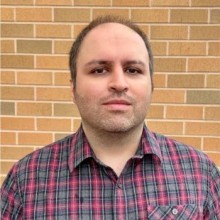Improving the Reliability of Near-Term Quantum Computers
Quantum computers (QCs) have the potential to provide solutions for numerous critical problems that surpass the computational abilities of classical computing. Quantum hardware is noisy and error-prone, and near-term QCs have limited reliability, applicability, and scalability. Although quantum error correction shows promise for fault tolerance in quantum computing, the overhead it entails is currently unaffordable for near-term QCs. As a result, the realization of large-scale fault-tolerant quantum computing is likely a decade or more away. Despite their noisy nature, near-term QCs have the potential to offer speed-up in certain applications, including optimization, machine learning, and quantum simulation. To this end, efforts in the quantum software and architecture stack aims to leverage software techniques to improve the reliability of near-term quantum hardware. There are two different types of QCs, digital and analog, and we are still in the early stages of their development, with no clear winner yet. In this talk, I will discuss how I have contributed to improving the reliability of both digital and analog QCs. I will begin by introducing FrozenQubits, which improves the fidelity of optimization programs on digital QCs. By leveraging insights about the power-law distribution commonly observed in many real-world graphs, FrozenQubits identifies hotspot nodes, which tend to have a significantly higher impact on the noise of the quantum program, and removes these nodes by substituting their problem variables with both
possible values (-1 and +1). Skipping hotspots generates a set of independent sub-problems that can be solved independently, leading to a significantly higher fidelity when executed on noisy QCs. Next, I will introduce EQUAL, which improves the reliability of analog Quantum Annealers (QAs). EQUAL capitalizes on the knowledge of the limited precision supported by the QA hardware and introduces controlled perturbations to mitigate the effect of device noise. This step involves generating an ensemble of quantum executables, which can effectively guide the program towards higher-quality solutions, even in the presence of noise and sub-optimal solutions.

Dr. Ramin Ayanzadeh
Georgia Tech on March 8, 2023 at 10:15 AM in EB2 3211
Ramin Ayanzadeh is a 2020 NSF/CRA CI-Fellows postdoctoral scholar at Georgia Tech. His research focuses on improving the reliability of different types of quantum computers through architectural support and demonstrating quantum advantage using near-term quantum computers. He earned his PhD from the University of Maryland, Baltimore County. His awards include the NIH/Meyerhoff Graduate Fellowship, the GoogleLime Scholarship, and second place in the 2019 ACM SRC. He has contributed to venues like ASPLOS, QCE, and Nature’s Scientific Reports. His papers on reinforcement quantum annealing and multi-qubit correction have been featured as the top 100 papers in physics and the editor’s choice for quantum computing by Nature’s Scientific Reports, respectively.
The Department of Electrical and Computer Engineering, sometimes in conjunction with other NC State departments makes an ongoing effort to invite the brightest experts from academia, business, and research to come speak and share their ideas, experiences, and research with faculty, students, and alumni at NC State.
